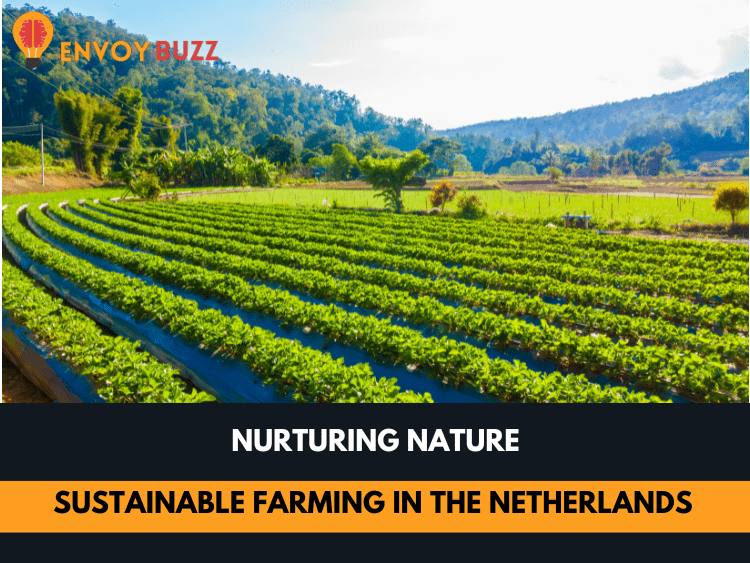At Wageningen University’s Farm of the Future, where one might have anticipated the presence of robots and perhaps even drones soaring overhead, a different scene unfolds. On a radiant day, project manager Wijnand Sukkel stands amidst the vast fields adjacent to the university building. In the backdrop, there are bare trees and the iconic windmills. He points towards the varied crops adorning the fields.
In the Netherlands, these fields would traditionally be dominated by a single crop, such as maize or wheat. However, in Lelystad, they are pioneering diverse agricultural methods, simultaneously cultivating eight different crops, including wheat, onions, potatoes, and broad beans.
Mr. Sukkel said “We know that crop diversity works, It’s a more efficient use of water, it has lower risk of pest disease, it has a higher biodiversity, it’s better for the soil, and it gives higher yields.”
The global population is poised to reach nearly 10 billion by 2050, according to the UN. To address the challenge of providing food for this growing populace while mitigating carbon emissions, Mr. Sukkel and his colleagues are developing sustainable farming systems.
The Farm of the Future project was initiated four years ago in response to the decline in biodiversity caused by climate change. Their mission was to design a high-yield farming system with zero reliance on fossil fuels and no harm from pesticides, all while being resilient to extreme weather conditions.
The Farm of the Future has invested in cutting-edge technology to bolster its production and sustainability. One innovation is a drainage system designed to collect and pump excess water underground. This innovative approach ensures efficient water management, especially during periods of excess rainfall.
To promote ecological diversity, perennial flower strips have been implemented to provide food and shelter for insects. Timing the harvests and plantings differently prevents ecological disruption and provides a habitat for insects to thrive.
Additionally, technology has been deployed to recognize and manage weeds effectively. Rather than applying uniform doses of herbicides, machines now recognize and target weeds specifically, reducing the need for widespread chemical use.
However, Mr. Sukkel acknowledges that the high cost of technology can be a challenge for farmers. For instance, some specialized equipment, like large potato harvesters, can cost up to €500,000 and are used for only a few weeks each year.
The Dutch government has also taken bold steps to address environmental concerns, aiming to reduce nitrogen emissions by 50% by 2030, which has led to protests from farmers who face reductions in livestock numbers.
In the southwestern Netherlands, third-generation farmer Jacob van den Borne has diversified his crops, including potatoes, sugar beets, wheat, barley, parsnips, and sweet potatoes, across 900 hectares of land. He utilizes precision farming, employing GPS technology for precise crop management and soil scanning technology for detailed soil mapping.
Investing approximately €1 million in technology, Mr. van den Borne is committed to sustainable practices. His focus for the future includes variable rate irrigation to efficiently manage water resources based on weather conditions. Disease management is another priority, with weather stations providing data to protect crops proactively. He foresees a role for AI in solving agricultural challenges.
Despite technological advancements, Meino Smit, an organic farmer and sustainability expert, expresses concerns about the environmental impact of extensive technology use in agriculture. He said that “Dutch agriculture is not currently sustainable”.
“Technology has a negative impact on the environment; the more tech you use, the more it creates a negative impact in the environment,” he told.
“Big machines are very bad for the soil and they use a lot of energy. Tech is not a solution. We need reduced energy use combined with tech and labour.”
Farmers are increasingly recognizing the need for adaptability in the face of climate change. Mr. van den Borne said “We are producing more efficiently with a lower ecological footprint; it’s not only quantity but also quality”. Like many farmers, he’s feeling the pressure. “It’s pretty scary but less than 1% of the global population is feeding the rest. It’s quite an important job.”
For more blogs visit Envoybuzz.

